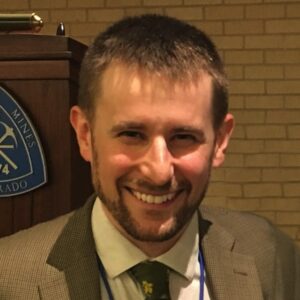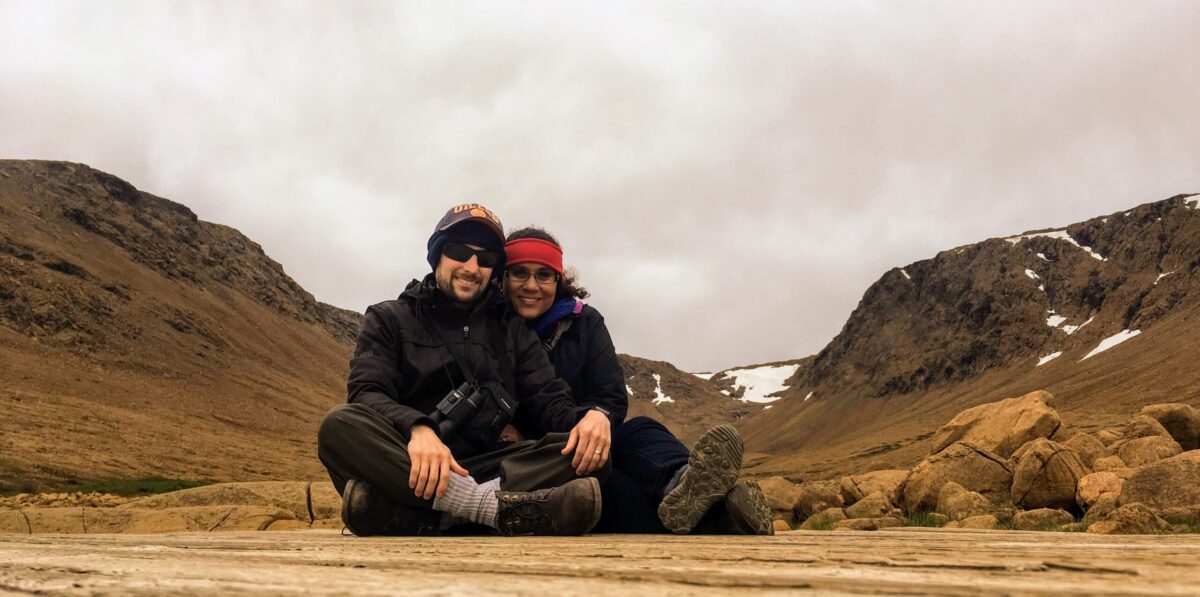
For the past 50 years, the Canadian Scientific and Christian Affiliation has facilitated discussions about science and Christian faith in Canada. As part of our 50th-anniversary celebrations, we asked 50 CSCA members to comment on their personal connections to science, scripture, and Canadian scenery. We will share these contributions throughout 2023 in the hope that you will find them engaging and encouraging.
CSCA member of the week: Mark McEwan, digital content person for CSCA & ASA
 1. Why did you choose your scientific discipline?
1. Why did you choose your scientific discipline?
Well, like many other CSCA members, I am not a scientist. I am a seminary student (graduating May 2023 if all goes well) writing a thesis in science, theology, and intellectual honesty.
Watching Star Trek: The Next Generation and its spinoffs in the ’90s, I became fascinated with science from a young age. In the tenth grade, I was introduced to creation science, which sparked a joint passion in me for scientific apologetics. I did well in high school math and science, so after a year at an Edmonton Bible college, I went to study electrical engineering at the University of Alberta in the fall of 2002. I was in my third year when I felt, quite deeply, that being an engineer was not my calling, so I transferred my credits to the secondary education program to become a high school math and science teacher. Around the same time, I became indentured as an apprentice electrician. After finishing my degree (2007), I decided to focus on finishing my electrical ticket (2010). Around this time, I had reached a personal breaking point in my faith, where I had very many questions but seemingly no one to turn to. The pat answers and ‘shortest path back to the status quo’ approach of evangelicalism wasn’t cutting it for me, and a friend suggested that we have regular “life-planning meetings.” On our very first meeting, he (a graduate of Trinity Western University) suggested that I attend ACTS Seminaries at TWU. I immediately decided this made sense, and that was the only life-planning meeting we ever had.
Leaving Edmonton for TWU was one of the hardest things I’ve ever done, but it was well worth it. There I was able to settle a great many questions that had been troubling me deeply, changing my mind on many things, and making friends with scientists like Arnold Sikkema, Dennis Venema, and others. I intentionally took longer in my studies, taking more courses than required, because I went there to learn. After all, wisdom is worth more than silver (Prov. 3:13-14). I attended many CSCA events, joining as a student member in 2012 in order to receive my free copy of Real Scientists, Real Faith, which I should probably read sometime! I also met my now-wife Krystal at TWU and took time off to pay for the wedding, etc. In 2015, Arnold suggested that I apply for a new job that CSCA was offering, and it’s been a terrific experience in the science-faith world since then. More recently, I’ve buckled down to finish my thesis. I may not be a scientist, but fitting a good twelve years into a two-year degree seems worth an honorary physics degree at some level, no?
2. What is one of your favourite Bible verses and why?
“In this world you will have trouble. But take heart! I have overcome the world.”
—John 16:33
I like this verse because it tells me that no matter what we’re going through, Jesus has overcome it. Whatever it is that is between you and joy, between you and hope, between you and the obedience of faith, Jesus has overcome that.
And I would also like to share that the most profound theological thing I’ve learned comes from Thomas F. Torrance, that God really is like Jesus:
God is not one thing in himself and another thing in Jesus Christ—what God is toward us in Jesus he is inherently and eternally in himself. … There is thus no God behind the back of Jesus Christ, but only this God whose face we see in the face of the Lord Jesus. There is no deus absconditus, no dark inscrutable God, no arbitrary Deity of whom we can know nothing but before whom we can only tremble as our guilty conscience paints harsh streaks upon his face. No, there are no dark spots in God of which we need to be afraid … . There is only the one God who has revealed himself in Jesus Christ in such a way that there is perfect consistency and fidelity between what he reveals of the Father and what the Father is in his unchangeable reality. The constancy of God in time and eternity has to do with the fact that God really is like Jesus, for there is no other God than he who became man in Jesus and he whom God affirms himself to be and always will be in Jesus.
—Thomas F. Torrance, The Christian Doctrine of God.
And whatever friend you might have who loves you the most, whomever you might know who is the most understanding, helpful, patient, longsuffering friend or family you have—Jesus loves you more than that person loves you, not less. And this same Jesus has overcome the world!
3. Which Canadian city or landscape do you love exploring and why?
The Local Chapters Project (2016-18) gave me an uncommon opportunity to travel across Canada, visiting each and every CSCA local chapter. It’s very hard to choose one favourite, but one stand-out was when Krystal and I took the opportunity to extend our trip to the Nova Scotia chapter to include all of the Atlantic Provinces, spending a week in Newfoundland at the end of June 2018. This was the one time that I didn’t mind being “upgraded” to an SUV when I had paid to rent a compact car ahead of time—driving across the province in a compact would have been a bad idea since even in the last week of June we encountered blowing snow, parallel to the ground. But there was good weather for our visit to Gros Morne National Park, which included a unique opportunity to walk directly on the earth’s mantle—one of the only places on earth where one can do so!
